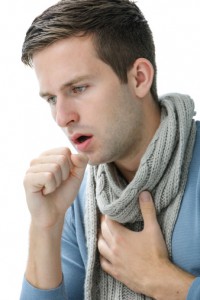 Colds make us feel miserable and coughing fits tend to bring attention to us at times when we want it least. For most catching a cold is a nuisance but for others with chronic respiratory conditions such as asthma, colds can be very serious. Colds are one of the most common causes for flare ups in asthmatics. The mildest of cold symptoms can easily lead to wheezing, shortness of breath or trigger asthma attacks.
Colds make us feel miserable and coughing fits tend to bring attention to us at times when we want it least. For most catching a cold is a nuisance but for others with chronic respiratory conditions such as asthma, colds can be very serious. Colds are one of the most common causes for flare ups in asthmatics. The mildest of cold symptoms can easily lead to wheezing, shortness of breath or trigger asthma attacks.
Taking preventative measures to avoid catching a cold is one of the best recommendations that asthmatics can follow. Some of these precautions include: frequently washing or sanitizing hands, staying away from individuals who have colds and avoiding contact to the eyes and nose.
Even though prevention is highly recommended, during the cold season avoiding a cold is sometimes easier said than done. If you do contract the cold virus there are several things you can do to help control your asthma:
- If you are sick stay home and take care of yourself. Staying home can help you avoid environmental factors that could worsen your condition.
- Monitor your air flow by frequently using a peak flow meter. If there is a drop in peak flow rates contact your physician to discuss adjustments to medication.
- Keep track of changes in your condition and developing asthma symptoms such as wheezing, tightness of the chest or coughing.
- Take medication as advised by your doctor.
Following these recommendations can help you manage symptoms and reduce the risk of a serious attack. If your condition continues to get worse after several days, make an appointment to see your doctor as soon as possible.
All content of this newsletter is intended for general information purposes only and is not intended or implied to be a substitute for professional medical advice, diagnosis or treatment. Please consult a medical professional before adopting any of the suggestions on this page. You must never disregard professional medical advice or delay seeking medical treatment based upon any content of this newsletter. PROMPTLY CONSULT YOUR PHYSICIAN OR CALL 911 IF YOU BELIEVE YOU HAVE A MEDICAL EMERGENCY.
